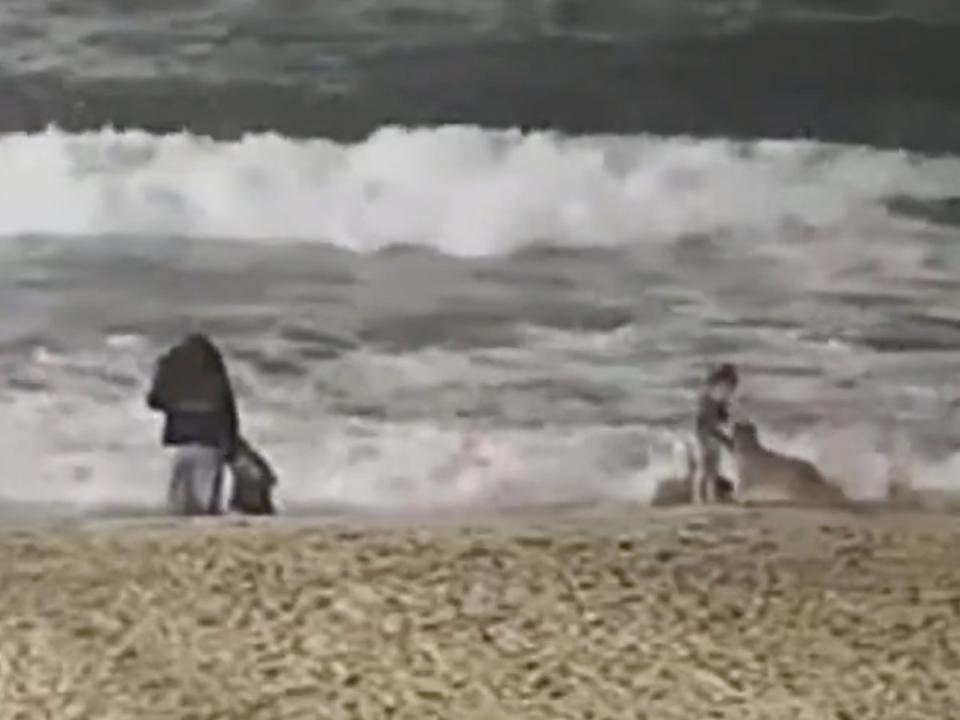Bloodied ultramarathon runner shares video moments after he was attacked by a coyote on a 150-mile run
An ultramarathon runner known for his international adventures has been attacked much closer to home by a coyote in California – comparing the incident to tussling with a shark.
Dean Karnazes, 59, posted a nighttime Instagram video to describe the alleged attack near the Golden Gate bridge, his face bloodied.
“I’m out on a 150-mile trail run, and I got attacked by a coyote,” he says in the video, posted last week. That was a first.
“It knocked me over and, thankfully, I’m running with poles, so I whacked it and it ran away.”
He described that attack as “kind of brutal,” adding: “I’m not sure what I’m gonna do, but I guess I gotta keep going or else it’ll probably come back for me.”
In the Instagram caption accompanying the video, he wrote: “I’ve been attacked by a shark, and now a coyote. Both incidents were terrifying.”
Mr Karnazes, who is based in California, is a marathon runner, speaker and author who has “run 50 marathons, in all 50 US states, in 50 consecutive days,” according to his website. “He’s run across Death Valley in the middle of summer, and he’s run a marathon to the South Pole.”
It adds that, “on ten separate occasions he’s run a 200-mile relay race solo, racing alongside teams of twelve. His list of competitive achievements include winning the World’s Toughest Footrace, the Badwater Ultramarathon, and winning the 4 Deserts Challenge, racing in the hottest, driest, windiest and coldest places on earth.”
Following his initial post about the coyote, Mr Karnazes followed up with advice regarding the treatment of wild animals.
“As I’ve witnessed firsthand, people (mostly tourist) have been feeding wild coyotes in the Marin Headlands area of California (sic),” he wrote on Instagram. “This has got to stop.
“If you see someone feeding a coyote, please say something. The local Rangers are doing the best they can, but we trail runners are out in these areas more than anyone.
“Thank you. It’s best for everyone, coyotes included. #letwildbewild”
In June, a coyote attacked a two-year-old child at a Southern California park; in April, a coyote bit another 2-year-old a few miles away.

“Coyotes are found almost everywhere in California, including cities, and authorities have long warned that small children and pets can be at risk, even though attacks are rare,” AP reported after those attacks.
“Last year, Fish and Wildlife began workshops to help communities deal with coyotes because of an increase in the number [of] conflicts with people.”
The California Department of Fish and Wildlife warns that coyotes are “smart adaptable canines ... by nature fearful of humans” that play a useful ecosystem role in controlling rodent populations.
“However, if coyotes are given access to human food and garbage, their behavior changes,” the Department warns on its website. “They lose caution and fear. They may begin to harass domestic livestock and pets . They might threaten human safety. They might be killed. Relocating a problem coyote only moves the problem to another neighborhood. Understand how to keep coyotes wild.”
Mr Karnazes did not immediately respond to a request for comment from The Independent.


